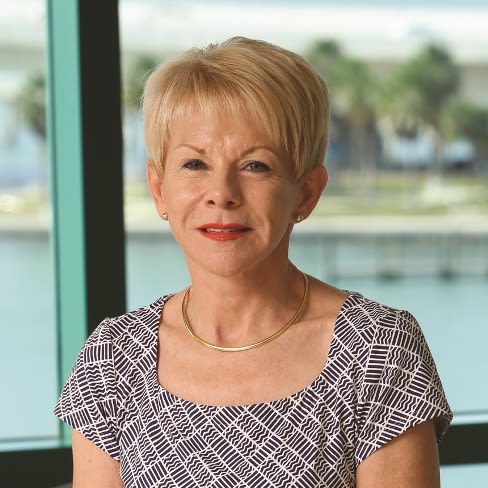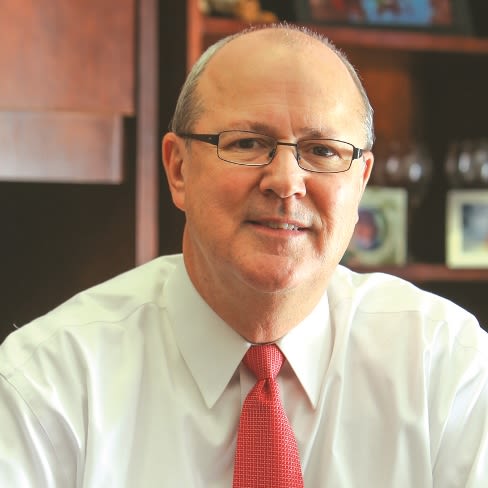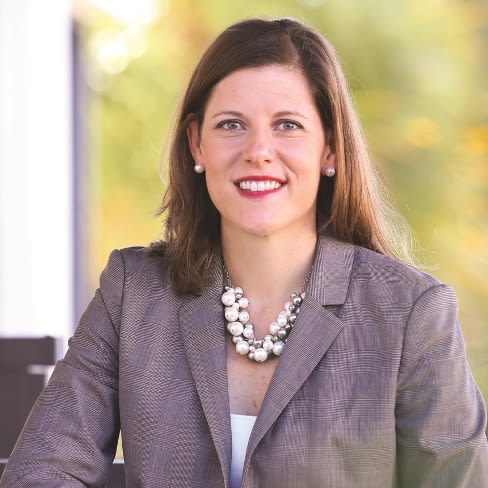Now Try This
by David Ball
Photography by Chad Spencer
Is it lonely at the top? Maybe not for executives and managers who work with a coach to bolster their careers, learn new skills or act as a sounding board for ideas and strategies. Here’s how three local professionals have used executive coaching to further their careers.

CYNTHIA MCCAGUE
Retired senior vice president and human resources director, Coca-Cola Company
After nearly 40 years in human resources, including 28 years at Coca-Cola, Cynthia McCague, 64, matched up many company employees with coaches, and used her own coach to help cement her legacy at one of America’s most visible brands. However, it was the coach’s advice for McCague’s life after Coca-Cola that made the most surprising impact.
Q: Why did you hire a coach?
A: “Four or five years before I retired, I contracted with somebody about the legacy work I was trying for in my business, things I wanted to accomplish that I wasn’t sure would get done. She talked to me about that, but then asked, ‘Now how much planning have you done about the next chapter, about your retirement plans?’ That’s what we did for [the next] three years—worked very steadily on a game plan for how I wanted to spend my life after I wrapped up a career.”
Q: How did she approach retirement coaching?
A: “She asked me what a typical day will look like. I said I liked to kayak, so I’m sure I’ll get up and kayak every morning. She said that will last about three weeks and then you’re going to want some other things in your life. I learned in order to have a satisfying next chapter you really need to be clear about what rings your chime and what makes a happy life. For many of us in an executive role, some sort of intellectual stimulation is necessary. How you get that comes in a lot of different ways.”
Q: What did your coach help you find?
A: “She made me get very clear in the nonprofit area where my passion was and to not simply get involved with the first thing that comes along. My No. 1 passion is global women’s issues, so I got involved with the Global Fund for Women, which is a micro-grant organization focused on developing countries.”
Q: What are the challenges with hiring and using executive coaches?
A: “There is a broad range of individuals with different kinds of backgrounds. There are people who have been through fabulous graduate-level executive coaching programs, and I’ve seen other people with much less preparation who have hung out their shingles and become an executive coach. Identifying the right person with the right skill set can actually be quite challenging. The fees attached to it can range wildly, so understanding if you are getting value for the service is important.”
MY EXPERIENCE
Coaching history: Talked once a month by phone, occasionally in person, for three years.
Biggest takeaway: Find a coach you trust; let him or her challenge you, but solve the problems for yourself.
Finding the right coach: The initial meeting is important; make sure you are both aligned on your goals, potential outcomes and the coaching process.

BRIAN HALL
Executive vice president, Gateway Bank of Southwest Florida
Brian Hall, 57, has used executive coaching a few times over his 30-plus years in banking, mostly to deal with specific issues. His most recent coach was Jim Bos of MBJ Group in Sarasota, who assisted Hall with a common managerial need: assembling a professional team of employees.
Q: How did you connect with your most recent coach?
A: “In 2002, I was a senior lending officer and then promoted to market president and CEO at SouthTrust Bank [before it was acquired by Wachovia in 2004]. The previous CEO initially had introduced me to Jim.”
Q: What was the goal for your coaching sessions?
A: “We had quite a few people at the professional staff level who were new at SouthTrust and came from varying backgrounds and various markets around the country. Jim helped us work together to accelerate building a sense of team.”
Q: Did the coach address philosophies and attitudes among the team?
A: “Some of the assessment tools led us to better understand preferred communication styles and understand [people’s] preferred way of being managed or led.”
Q: Which is more important: to have trust and chemistry with a coach, or to find a coach with experience in your business?
A: “I think the former. If I had an issue with something specific to my business, I’d be looking less at an executive coach and more at a consultant. Coaching is more generic to the challenges of managing organizations. You have to trust the things that are said are kept confidential. There has to be a certain compatibility.”
Q: How do you know when it’s time to end the coaching relationship?
A: “The team had clicked and was performing at a high level, we weren’t having turnover issues and things were running smoothly. And then SouthTrust Bank ended up selling to Wachovia so that brought a natural conclusion.”
Q: How do you know if you are getting value from a coach?
A: “I’ve always had very specific issues or items I wanted to address. I would start with the end in mind and I’d be able to determine over a fairly short period of time how to get to a solution in a timeframe we all hoped for.”
Q: What about cost?
A: “Cost is always an issue, but it’s an investment like training and building skills. Don’t be afraid to stop it, change the frequency of meetings or adjust something. Make sure you are making the progress you want.”
MY EXPERIENCE
Coaching history: Met in person once a month for three years.
Biggest takeaway: Accelerating team building.
Finding the right coach: Constantly evaluate; know when and how you will reach your goals so coaching doesn’t continue longer than necessary.

HULDAH MATHIS
Financial adviser, Northwest Mutual
At 31, Huldah Mathis might seem young to employ an executive coach. But many young professionals see past the stigma of seeming weak or ineffective if they seek executive coaching. Mathis, in fact, has consulted with two coaches, both located in other states, as her career has evolved.
Q: How did you learn about coaching and its benefits?
A: “It’s fairly well encouraged in our industry, and I’ve had coaches in other areas of my life, like sports, so I saw the value. The way our business is structured there is so much autonomy. That’s what drove me to do it—to have someone give me an objective look. It’s no different than any other area where I’ve needed that.”
Q: What did you want to improve or work on?
A: “I wanted to grow and work on the business rather than in it. When you think about things like infrastructure and hiring staff, building out a scheme and balancing that while also working with clients and doing the day-to-day stuff, you need some outside perspective.”
Q: What were the coaching sessions like?
A: “I would set out my business plan for the year and we would stick to that on our calls and see where I was. And, of course, we would talk about other things that would come up, like looking to hire new staffers. A lot of it was sticking to the progress that was set out in the beginning of the year and modifying it.”
Q: What were your coaches’ professional backgrounds?
A: “My first coach’s background was in my business; her career evolved into coaching later. That gave her instant credibility; she spoke from experience. My second coach did not have experience in my business, but she did have a lot of executive coaching experience and probably could translate that into every kind of high-level opportunity.”
Q: Why did you change coaches?
A: “I needed to focus on different areas. Also, I felt like it was good to have someone who wasn’t as familiar with me and could be completely objective.”
Q: What did your second coach help with?
A: “A whole reorganization of my office, having systems in place, having everything as efficient as it could be from a process standpoint. It was partly people placement, but partly things that could go paperless or things that we were only touching once.”
Q: Have your coaches helped make changes in your personal life, too?
A: “Both of them have been good about helping me think first as a person and not as a business robot.”
MY EXPERIENCE
Coaching history: Talked on the phone twice a month for five years with two different coaches.
Biggest takeaway: Don’t be afraid to change coaches if your goals change.
Finding the right coach: Use references; successful colleagues can be good resources for finding a coach.
______________
CREDENTIALS AND COST
Regulation
There is no regulatory body governing education and qualifications of coaches; basically anyone can call himself or herself an executive coach. The International Coaching Federation, however, does offer credentialing and certification courses for members, and several colleges like University of Texas, Georgetown University and Pepperdine University offer graduate-level programs on
coaching and executive leadership.
Fees
Rates can vary vastly depending on a coach’s experience and expertise, though Forbes magazine suggests a good coach should cost the same as a top attorney, up to $400 an hour or more.
WHO GETS COACHING AND WHY
66% of CEOs do not receive coaching or leadership advice from consultants or coaches, while 100 percent stated that they are receptive to it.
78% of CEOs said using a coach was their own idea; 21 percent said coaching was the board chairman’s idea.
60% of CEOs said progress made in their coaching sessions is kept between themselves and their coach; a third said this information is shared with the board of directors.
43% of CEOs rated “conflict management skills” the most important area for personal development.
The top two areas board directors want CEOs to work on are “mentoring skills/developing internal talent” and “sharing leadership/delegation skills.”
Bottom of the list areas CEOS use coaching for are “motivational skills,” “compassion/empathy” and “persuasion skills.”
____
SOURCE: A 2013 Stanford University study that polled more than 200 CEOs, board directors and senior executives of North American companies.